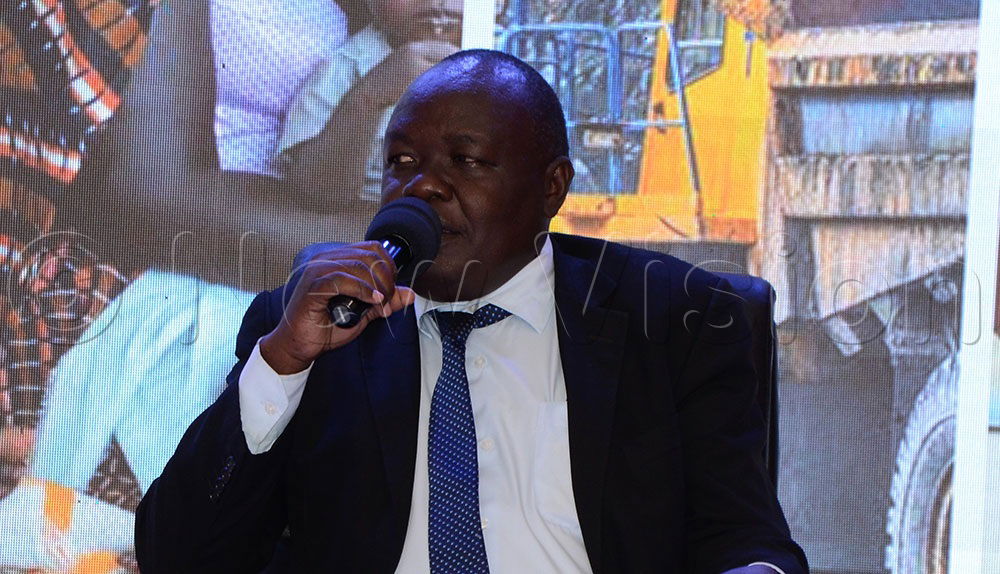Refugees in Omugo Settlement Decry Shortage of Healthcare Facilities
Refugees in the Omugo settlement, located in Terego district, Uganda, have raised concerns over the severe shortage of healthcare facilities in their area. With only one health center serving a population of over eleven thousand people, the situation has become a matter of grave concern.
This comes into focus as a distressing development that puts the Healthcare crisis at its looming core as the Omogo Refugee Settlement Struggles with Shortages. Refugees residing in the Omugo Refugee Settlement within Terego district have therefore, in an exclusive interview with Host Media through the dailywestnile.info blogsite, raised concerns about the dire shortage of healthcare facilities in their area. With just one health center serving a population of over eleven thousand refugees, the situation has become a matter of urgent concern.
Emmanuel Agele, the refugee welfare representative from village 4 in Omugo zone, recently spoke to our reporter about this critical issue. He highlighted the severe strain placed on the single health center in the area, emphasizing that it is struggling to meet the healthcare needs of the vast population it serves.
Agele stated, "We are facing a significant challenge with healthcare here in Omugo. There is only one health center, and it's expected to cater to the medical needs of over eleven thousand people. The situation is dire, and we urgently need more healthcare facilities."
Charles Adiga, another refugee living in the area, echoed Agele's concerns. Adiga expressed deep frustration about the limited access to healthcare, stating that it has become increasingly difficult for refugees to receive timely medical attention.
Adiga commented, "Accessing healthcare services has become a nightmare. Sometimes, when we go to the health center, we are told that there is no medicine available. This puts our health and well-being at risk."
Jaina Tomalu, a resident of Tank 50 village four in Omugo, shared a similar experience. Tomalu recounted instances where refugees seeking medical treatment were turned away due to the lack of essential medications.
Tomalu shared, "It's disheartening when you are unwell and you visit the health center only to be told that there are no medicines. We need a more reliable healthcare system that can address our health concerns."
While the situation is undoubtedly dire, Solomon Osakan, the Arua refugees' desk officer, shed light on some of the challenges faced by those responsible for providing healthcare services. Osakan revealed that they are currently facing financial constraints as they have been cut off from donor funds.
Osakan explained, "Our hands are tied to some extent due to the funding cuts. While we acknowledge the pressing need for additional healthcare facilities, we are grappling with limited resources. We are actively working to find solutions to this healthcare crisis."

Mr. Solomon Osakan - CC: NV
As per official records, there are a total of eleven thousand two hundred twenty refugees residing in the Omugo settlement. The current shortage of healthcare facilities has created a precarious situation for these vulnerable individuals, who are in dire need of accessible and reliable healthcare services.
The plight of refugees in Omogo serves as a poignant reminder of the challenges faced by displaced populations worldwide. It underscores the importance of continued support and funding for refugee communities to ensure their basic healthcare needs are met.
As the situation unfolds, stakeholders and organizations must come together to find sustainable solutions to address this pressing issue and safeguard the health and well-being of refugees in the region.
Key to Note:
Omugo Refugee Settlement is one of the two refugee settlements in Terego District, Uganda. It is located in Omugo Sub-county, about 30 kilometers from the district headquarters of Leju. Omogo Refugee Settlement was established in 2016 in response to the influx of refugees from South Sudan. The settlement is home to over 100,000 refugees, mostly women and children.
The refugees in Omugo Refugee Settlement are mainly from the Nuer and Dinka ethnic groups. They fled their homes in South Sudan due to the ongoing conflict and violence in the country. The refugees in Omugo Refugee Settlement live in basic conditions, but they have access to essential services such as food, water, shelter, and healthcare.
The refugees in Omogo Refugee Settlement live in small, mud-brick houses with thatched roofs. They have access to basic services such as food, water, shelter, healthcare, and education. However, the settlement is overcrowded, and resources are scarce.
The refugees often face challenges such as malnutrition, disease, and a lack of access to education and employment.
The Ugandan government and humanitarian organizations are working to provide assistance to the refugees in Omogo Refugee Settlement. However, more needs to be done to improve the living conditions of the refugees and help them integrate into the Ugandan community.
The Ugandan government and humanitarian organizations are working to address these challenges. However, more needs to be done to improve the living conditions of the refugees in Omogo Refugee Settlement and help them integrate into the Ugandan community.
As of September 2023, the Omugo Refugee Settlement hosts over 100,000 refugees, mostly from South Sudan. The settlement is divided into three zones: A, B, and C. Each zone has its own schools, health clinics, and other facilities.
The refugees in Omugo Refugee Settlement receive a variety of assistance from the United Nations High Commissioner for Refugees (UNHCR) and other humanitarian organizations. This assistance includes food, shelter, healthcare, education, and protection.
Despite the challenges of living in a refugee settlement, the refugees in Omugo Refugee Settlement are resilient and determined to build new lives for themselves and their families. They are working hard to learn new skills, start businesses, and contribute to the development of the settlement and the surrounding community.
BY: Anwangkani Franco, dailywestnile.info